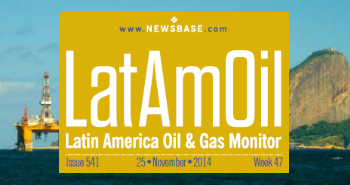Colombia’s Ecopetrol to join Oxy subsidiary in exploring four offshore Caribbean blocks
Colombia’s national oil company (NOC) Ecopetrol announced last week that it would be teaming up with a subsidiary of the US-based Occidental Petroleum (Oxy) to explore four offshore blocks in Colombia’s section of the Caribbean Sea.
This joint exploration deal with Anadarko Colombia Co. will aid Ecopetrol in its mission to strengthen Columbia’s offshore exploration work, the NOC said in a statement.
Under the new agreement, Ecopetrol and Anadarko Colombia Co. will explore the deepwater blocks COL 1, COL 2, COL 6 and COL 7 in the hope of finding commercial deposits of hydrocarbons. Ecopetrol will receive 40% stakes in the blocks in the exploration and production licences issued for these blocks, while Anadarko Colombia Co. will own the remaining 60%. The completion of the deal is subject to the approval of Columbia’s National Hydrocarbons Agency (ANH).
“We are very pleased to seal this new alliance with Oxy, a first-rate partner, to continue strengthening the exploration portfolio in the Colombian Caribbean in line with our 2040 strategy ‘Energy that transforms', one of whose drivers seeks to maintain competitiveness in the hydrocarbon chain by increasing offshore exploration,” Ecopetrol CEO Felipe Bayón remarked upon the signing of the deal.
Prior to the conclusion of the agreement, all four blocks concerned underwent geological evaluations based on seismic information collected by Anadarko. The results of these studies indicate that there is a possibility that the sites hold significant quantities of hydrocarbons; if they do, development could prove to be transformational for the Colombian oil industry.
Exploration will allow both companies to scour the licence areas and collect seabed samples in order to determine whether hydrocarbons may be present – and if so, in what quantities and of what types. The partners also aim to carry out exploration drilling, which Ecopetrol believes will pose an “important technological challenge,” particularly since it will be done in deep waters.
The blocks are located in the north-eastern part of the Caribbean Sea off the Colombian coast.


Follow us online